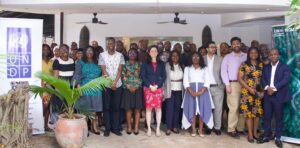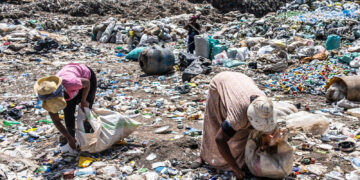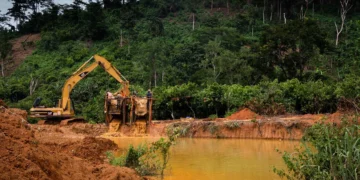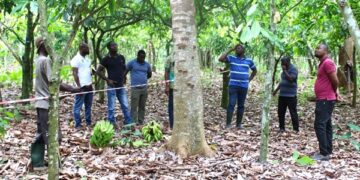ACCRA, Sept 23 (The African Portal) – Ghana is developing a roadmap to transition to a nature-positive economy, with support from the United Nations and international partners.
The initiative is being funded by the UK’s Department for Environment, Food and Rural Affairs (DEFRA) through the Global Centre on Biodiversity and Climate. It is led by the UN Environment Programme World Conservation Monitoring Centre (UNEP-WCMC) in collaboration with the UN Development Programme (UNDP), and in partnership with several national institutions including the Ministry of Finance, the Ministry of Environment, Science and Technology (MEST), the National Development Planning Commission (NDPC), the Council for Scientific and Industrial Research (CSIR), the Centre for Biodiversity Conservation Research (CBCR) and the Ghana Statistical Service (GSS).
As part of the Nature Transition Support Programme (NTSP), a two-day workshop under the theme “Building a Nature-Positive National Economic Transformation Roadmap” was held to co-design and validate the strategy.
The roadmap seeks to integrate biodiversity and ecosystem services into Ghana’s economic and fiscal planning as part of its wider transformation agenda.

Dr Abdul-Razak Saeed, UNDP Ghana’s Head of Environment and Climate Cluster, said the workshop was “more than a results-sharing platform — it’s a call to action for all sectors to integrate nature into Ghana’s economic and fiscal planning.”
He added: “Aligning our development pathways with the Sustainable Development Goals (SDGs) and the Kunming–Montreal Global Biodiversity Framework is key to a sustainable and inclusive future.”
Dr Saeed reaffirmed UNDP’s commitment to the agenda, noting that the organisation is “dedicated to exploring innovative financing and partnerships that drive nature-positive development, including through the Biodiversity Finance Initiative (BIOFIN).”
Dr Michael Kusi Appiah, Chief Analyst responsible for macroeconomic modelling at the NDPC, warned against ignoring the environmental costs of growth. “As we pursue growth and job creation, we must remain mindful of the hidden social and ecological costs of unsustainable resource use. This initiative reflects our commitment to aligning economic prosperity with the health of our natural environment, ensuring long-term sustainability for all,” he said.
Presenting an overview of the NTSP, Hamza Butt, a Programme Officer at UNEP-WCMC, said the project is being implemented in five countries — Ghana, Ecuador, Colombia, Indonesia and Vietnam. Ghana, he said, is now at a “critical stage where findings are ready for dissemination.”
He outlined four pillars of the programme — country engagement, integrated economic-ecological modelling, political economy analysis, and policy coherence — which he said would help guide decision-making, promote collaboration and support the development of policies that reconcile economic growth with environmental sustainability.
Dr Ishmael Nii A. Doodoo, Director and Head of Innovative Finance, Partnerships and Markets at the Office of the President, said the NTSP had direct relevance to Ghana’s 24-Hour Economy agenda.
“The NTSP Project presents timely opportunities that can significantly shape the second phase of Ghana’s 24-Hour Economy. We must harness these insights in a structured and strategic manner,” he said.
He added: “Building professional capacity within the nature-positive sector is key to unlocking sustainable growth. We are ready to explore this space further, through partnerships, innovation, and financing, to ensure nature is fully integrated into our national development agenda.”
The workshop also served as a platform for reviewing risks, sharing results and building consensus on how to embed environmental accountability into Ghana’s economic transformation.






